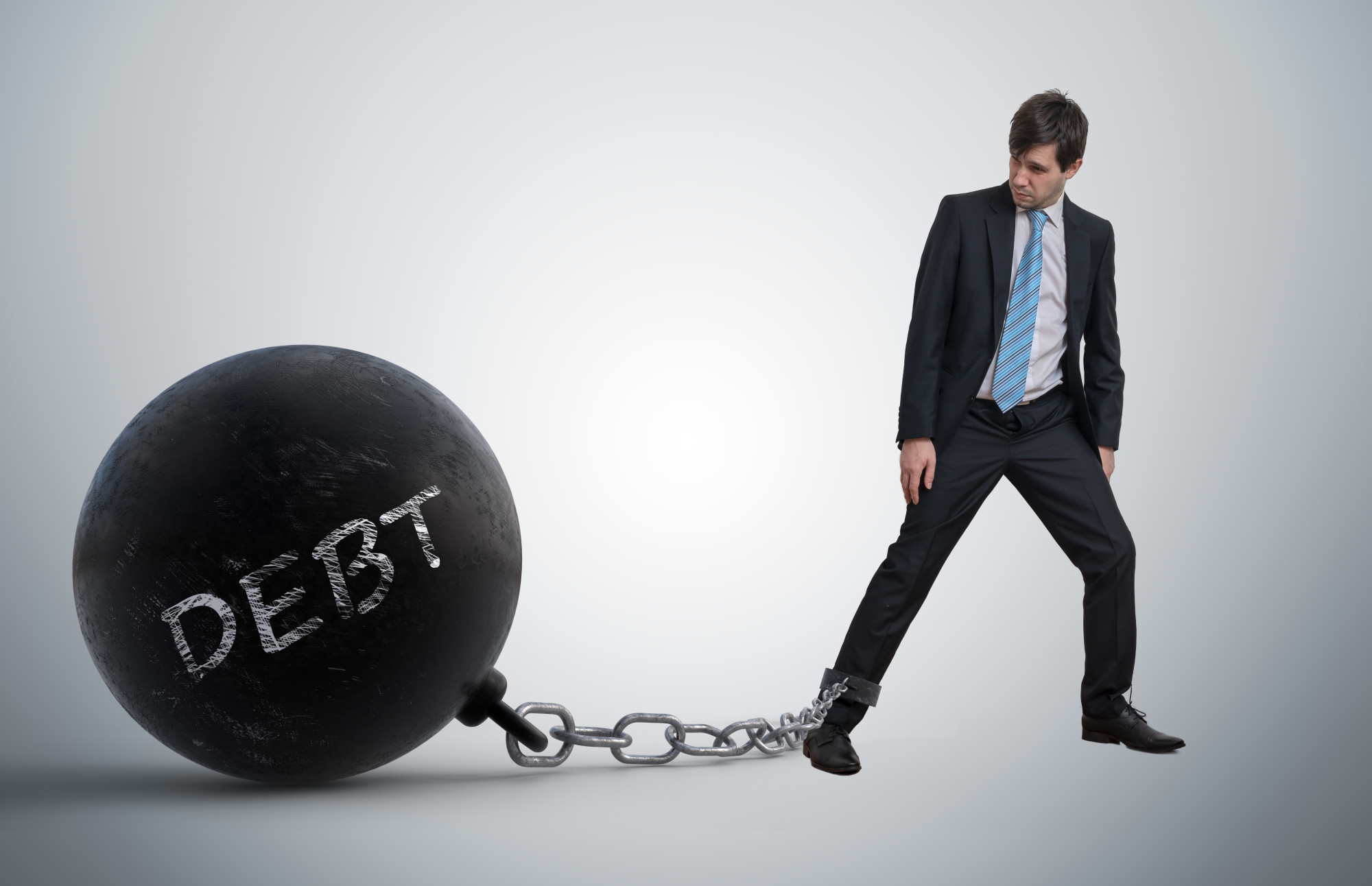
Young businessman has chained big metal ball to his leg with debt written.
Staying out of debt feels like a full-time job living in the United States of America in 2023. An estimated 30 percent of adults in the United States have between $1,001 and $5,000 in credit card debt alone. Racking up personal debt is a terrifying proposition, especially if you don’t have great financial advice to lean on.
Taking out more personal loans to cover your existing debts is a recipe for disaster, but there are steps you should take to maintain your personal finance goals and stay debt-free. The good news is that you’ve found the right guide to learning to avoid personal debt and maximize your financial might.
Keep reading to learn more today!
Have Emergency Funds
Emergency funds are vital if you want to take steps toward staying out of debt during periods of financial downturn. It’s a good rule of thumb to have at least three months’ worth of expenses in your savings account to prevent going into personal debt if the worst happens. You can use that money as a cushion to get back on your feet without losing everything you’ve worked for.
Build a Budget
Many people fail to realize where their money is going when building up credit card debt. Sit down and review your subscriptions and other non-essential items you spend money on. You’ll have a much better idea of what you can spend each month while cutting out spending that isn’t benefiting your personal finance situation.
Pay Your Full Credit Card Debt Off
Another strategy that will help you avoid getting into debt is to pay off your credit card debt each month. It would be best never to spend more than you can afford when using a credit card, as the interest rates will destroy your credit history and create a hole you can’t escape.
You’ll have more credit to work with in the event of an emergency, and you’ll have a much stronger credit score. It’s also wise to be your own bank insurance for the highest level of financial protection.
Build Your Credit Score
A strong credit score helps in a variety of ways, especially when you need to take out personal loans for emergency expenses. Your credit score also makes it much easier to secure financing for a home or vehicle.
Paying off your debts in a timely manner and never missing payments will help you build a strong credit score. You’ll also get a lower interest rate on future loans you take out, saving you significant money in the long run.
Now You Can Avoid Personal Debt
Avoiding personal debt takes hard work and commitment, but you have all the financial advice you need to avoid racking up credit card debt and destroying your credit score. Build a budget and track your spending to start staying out of debt, and make payments on time to build your credit score. Most of all, set money aside for emergencies so you can avoid taking out personal loans.
Check out the rest of our blog page if you’re trying to find more engaging and beneficial content like this!